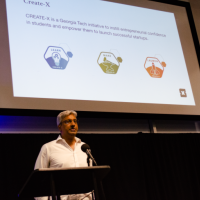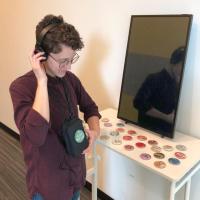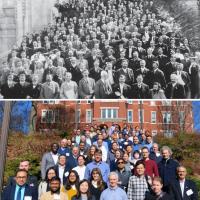5 min read
Launched in 2020, SSI has evolved into a full-fledged, student-run program to collect and process samples for research labs.
6 min read
Tip Cycle program is capable of washing unfiltered pipettes to allow for multiple uses before discarding them.
2 min read
Industry Growth Awards are the highest honors bestowed each year by CGHI
3 min read
4 min read
4 min read
To make connectivity more equitable, researchers at the Georgia Institute of Technology are developing open-source software to empower citizens to report on cellular network quality and places without any connectivity.
4 min read
New research from the Georgia Institute of Technology offers a unique framework for understanding queer communities and their histories.
4 min read
A new study will examine the relatively invisible role of the algorithms 20th-century engineers developed to optimize the electric power grid.
4 min read













